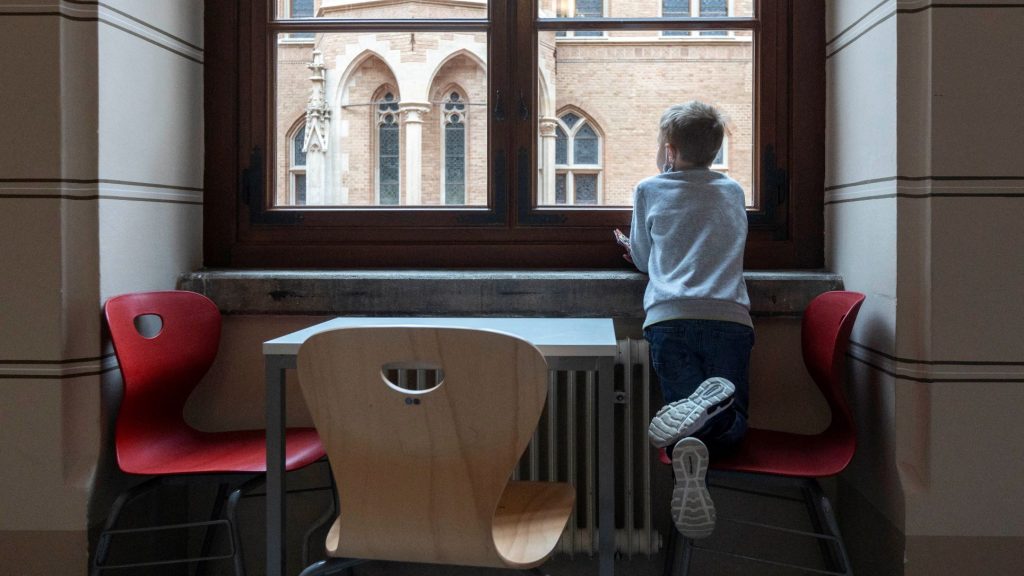
Volunteers running a Ukrainian Saturday school in Vienna have been scrambling to adapt as the number of children attending has more than tripled in a matter of weeks.
The school is only too happy to accommodate the influx of refugee children fleeing the war at home, but the need to expand capacity has tested the school administrators’ organisational skills.
“We effectively reacted immediately,” Rostyslav Tys, one of four administrative organisers at the Ukrainian Saturday School in Vienna, told Reuters, adding that the number of pupils at the school jumped to close to 1,000 after Russia’s invasion of Ukraine, from 250-300 before.
“We switched to a two-shift operation on Saturdays, which has never happened here before … then we introduced lessons on Sunday at a Saturday school so we could somehow look after this number of refugee children.”
Austria is only about 500 km (310 miles) from Ukraine but its Ukrainian community is relatively small – around 16,000 people before the war started. Most Ukrainians who arrive travel onwards, especially to Germany. Still, Austria has so far registered around 40,000 who plan to stay since the invasion.
The Saturday school, which provides classes for all ages up to 18, teaches a full range of subjects from geography to chemistry and literature, all in Ukrainian.
As demand surged, the school wanted to avoid having big classes of 30 pupils or more but also didn’t want to turn too many children away, Tys said. There is now a waiting list for admission.
“It has been challenging for us,” said Tys, director of a management consulting firm who in his spare time administrates at the school along with three others while a head teacher oversees academic matters.
Lessons are held in an Austrian high school in central Vienna, near several luxury hotels where the Iran nuclear talks recently took place, a setting that could hardly be more different to the war the children and their relatives have fled.
“Some understand what is happening in Ukraine, some perhaps not quite yet,” said one teacher of eight- to nine-year-olds who gave only her first name, Kalina.
“Some children are better informed than others. And yes, they have very strong views against Russia, which is understandable. They had to leave their homes,” she said.
While it has been difficult to deal with the surge in new arrivals they are well behaved and seem to like their new school, Kalina said.
“They’re just children. They behave like children – they play ball games and football and the like, and they like drawing very much.”
(Writing by Francois Murphy; Editing by Susan Fenton)